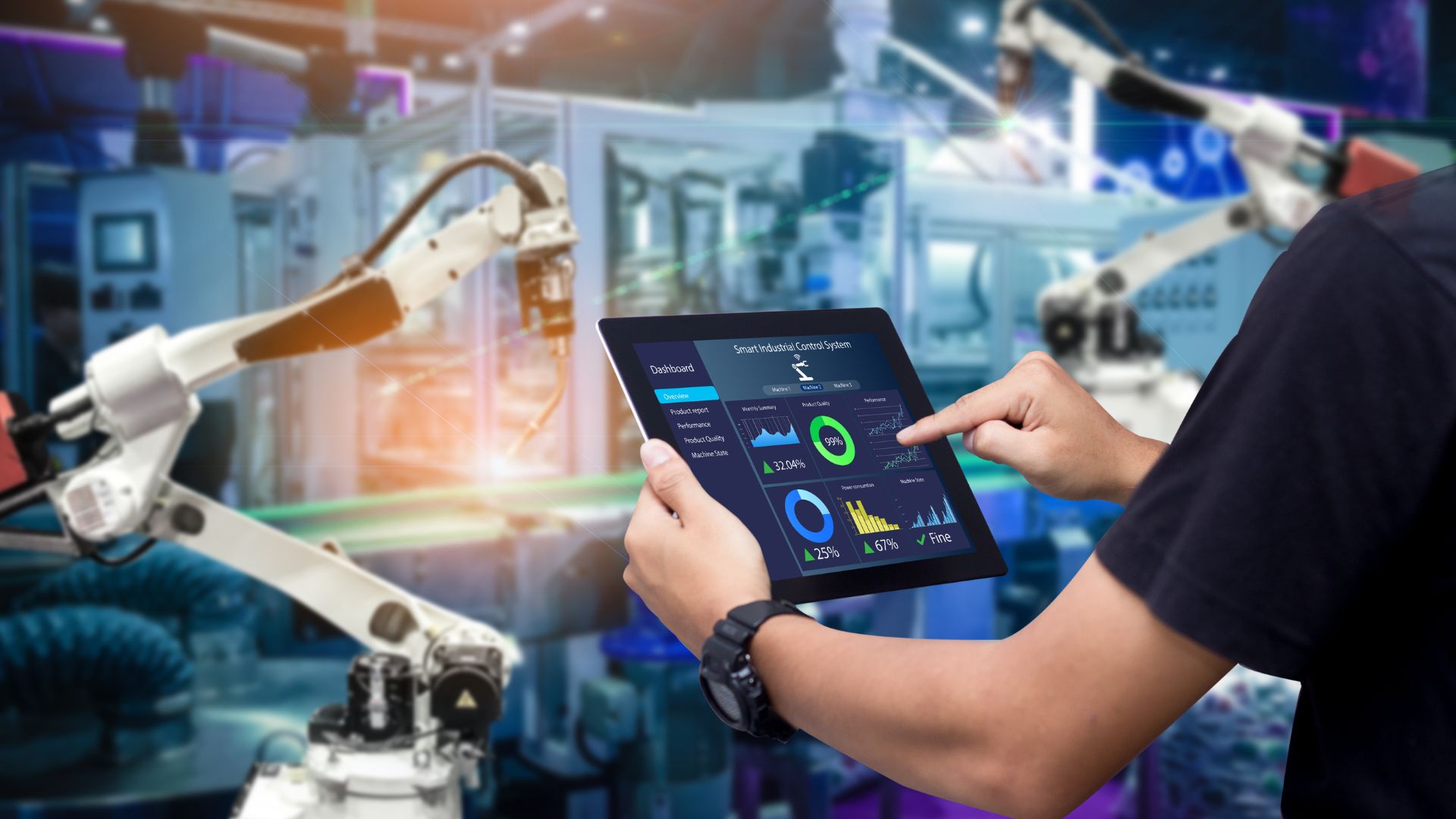The alcohol beverage industry is undergoing a seismic shift thanks to Artificial Intelligence (AI) integration. As technology evolves, AI is not just a buzzword but a vital tool that reshapes how businesses operate and interact with consumers. In this blog, we’ll dive into the exciting ways AI is making waves in the alcoholic beverages sector, from product development to customer experience. We will also examine the challenges and opportunities, including possible risks like data privacy issues and the importance of maintaining human oversight in AI-powered operations.
Revolutionizing Product Development
Envision a future where creating a new wine or beer is as effortless as clicking a button. This is the potential that Artificial Intelligence (AI) is unlocking. By leveraging machine learning, companies can analyze existing products, consumer reviews, and tasting notes to craft predictive models. These models predict how different compositions taste and how the market might receive them, opening up a world of possibilities for product development in the alcoholic beverage industry.
The Role of Machine Learning in NPD
In many cases, AI is used in new product development (NPD). Product development involves a combination of machine learning and human skills. AI algorithms are used to analyze the existing product formulations and raw materials used in existing products, alongside consumer reviews and tasting notes, to construct models predicting how beers of different compositions taste and how positively they would be received. Several companies are using AI to save time on various aspects of NPD and are now fully adopting the system as a critical component of their future new product development.

Real-World Examples
- Wine of Moldova in Germany is using AI throughout its entire wine-making process, from harvesting to blending. By employing AI, they can optimize their production methods and enhance the quality of their wines, ensuring they meet the expectations of modern consumers.
- Sapporo Breweries in Japan has partnered with IBM to develop an AI system that accelerates product development, significantly cutting down on time and costs. This collaboration exemplifies how technology can streamline traditional processes, enabling faster innovation cycles.
- AB InBev, the world’s largest brewer, has utilized AI to create Beck’s Autonomous, the first beer designed by AI. By analysing consumer preferences and taste profiles, AI helped craft a unique recipe that appealed to a broad audience.
- von Stiehl Winery in the United States encourages purchasers to give feedback and tasting notes which will be used to generate AI recommendations to improve the quality of the next batch of the wines.
Enhancing Customer Experiences
AI is changing the game when it comes to customer engagement. By analysing consumer behaviour, brands can tailor their offerings in real-time, leading to a more personalized shopping experience. Imagine walking into a store and receiving suggestions based on your past purchases—this is the future AI promises.
Personalization Through Data Analysis
Personalization is key in today’s market, where consumers expect brands to understand their preferences. AI can analyse vast amounts of data from customer interactions, including purchase history, social media activity, and online reviews. This data-driven approach allows brands to create tailored experiences that resonate with individual consumers.
For instance, AI can suggest specific wines or spirits based on a customer’s previous purchases, enhancing the shopping experience and increasing the likelihood of repeat business. This level of personalization not only improves customer satisfaction but also fosters brand loyalty.
Notable Campaigns
- Carlsberg launched an interactive billboard that dispenses beer when the brand name is pronounced correctly, thanks to a custom AI. This innovative marketing campaign not only engages consumers but also creates a memorable brand experience.
- Diageo offers a mobile experience that uses machine learning to recommend whiskey flavours tailored to individual preferences. By asking users a series of questions, the app provides personalized suggestions that enhance the customer journey.
- Mackmyra, a Swedish whiskey distillery, has developed an AI system called Intelligens. This system integrates existing blending recipes, sales data, and customer preferences to optimize flavour combinations, ensuring that each batch meets consumer expectations.
Smart Inventory Management
In the alcohol industry, where trends shift quickly, effective inventory management is crucial. AI-driven predictive analytics help businesses forecast demand and optimize supply chains, ensuring popular products stay in stock while minimizing waste. This strategy not only enhances efficiency but also drives profitability.
The Importance of Forecasting
Accurate demand forecasting is essential for maintaining optimal inventory levels. AI can analyse historical sales data, seasonal trends, and external factors such as weather or local events to predict future demand accurately. This predictive capability enables businesses to adjust production schedules and inventory levels accordingly.
By implementing AI-driven inventory management systems, companies can avoid stockouts—situations where products are unavailable—and overstocking, which can lead to increased waste and costs. This efficiency translates into higher profitability and improved customer satisfaction.
Industry Leaders
- Heineken employs a cloud-native AI solution for better supply chain planning. By utilizing advanced analytics, Heineken can optimize its inventory management, ensuring that popular products are readily available to consumers.
- Constellation Brands utilizes AI to adjust production schedules based on demand fluctuations. This proactive approach allows the company to respond quickly to changes in consumer preferences, ensuring optimal inventory levels.
- Pernod Ricard has implemented a revolutionary ecosystem of AI-powered tools that prioritize marketing allocation, sales force efficiency, and promotions. This comprehensive approach to inventory management enhances overall operational effectiveness.

Transforming Marketing and Branding
AI is not just about efficiency; it’s also a powerful marketing tool. By analysing vast amounts of consumer data, brands can create targeted promotions, driving engagement and conversion rates. AI can even dynamically adjust pricing based on market trends, ensuring that companies remain competitive.
Data-Driven Marketing Strategies
In the age of information, data is gold. AI enables companies to analyse consumer behaviour on a granular level, identifying trends and preferences that inform marketing strategies. By understanding what resonates with their audience, brands can craft focused campaigns that drive engagement and sales.
For instance, AI algorithms can analyse social media interactions and online reviews to gauge consumer sentiment. This insight allows brands to tailor their marketing messages and promotions to align with consumer interests, increasing the likelihood of conversion.
Innovative Approaches
- Heineken is leveraging AI to supercharge its consumer loyalty campaigns. By collecting relevant consumer data, the company can understand purchasing behaviour and promote new and existing products directly to consumers.
- Diageo uses deep consumer insights to create immersive marketing experiences for its brands. By understanding actual consumer behaviour, Diageo can develop campaigns that resonate with its target audience.
- Pernod Ricard employs AI tools for marketing allocation, sales force optimization, and promotions. This data-driven approach enhances the effectiveness of marketing initiatives, driving brand awareness and sales.
Ensuring Quality Control and Compliance
Quality is paramount in the alcohol industry, and AI is stepping in to help maintain high standards. AI systems can monitor production processes in real-time, detecting anomalies and suggesting adjustments. This not only reduces waste but also ensures that consumers receive the quality they expect.
The Role of AI in Quality Assurance
AI-powered quality control systems can analyze data from various stages of production, ensuring that each product meets regulatory standards and consumer expectations. By detecting anomalies early in the process, companies can make real-time adjustments to maintain product quality.
For example, AI can monitor fermentation processes in breweries, ensuring that temperature and humidity levels are optimal for producing high-quality beer. This proactive approach minimizes the risk of subpar products reaching the market.
Quality Assurance Initiatives
- AB InBev uses AI to optimize its beer filtration process, enhancing both quality and efficiency. By integrating AI into quality control, the company can ensure that its products meet the highest standards.
- Brown-Forman implements AI to ensure colour accuracy in its whiskey products. This commitment to quality ensures that each bottle meets consumer expectations for taste and appearance.
- Pernod Ricard has partnered with Trellis Ltd to develop a comprehensive quality control system that leverages AI to provide accurate grape yield, quality, harvest timing and procurement cost prediction. This system enhances efficiency and reduces waste, ultimately contributing to a more sustainable operation.
Challenges and Opportunities Ahead
While the integration of AI in the alcohol beverage industry presents numerous benefits, it also comes with challenges. Companies must navigate issues related to data privacy, the need for skilled personnel, and the potential for technology to disrupt traditional practices.
- Addressing Data Privacy Concerns. As companies collect and analyse vast amounts of consumer data, concerns about privacy and security become paramount. Businesses must ensure that they comply with data protection regulations and implement robust security measures to protect consumer information.
- The Need for Skilled Personnel. The successful implementation of AI technologies requires a skilled workforce that understands both the technology and the industry. Companies may need to invest in training programs to equip their employees with the necessary skills to leverage AI effectively.
- Embracing Change. The alcohol beverage industry has a rich history and tradition, but embracing AI requires a willingness to adapt. Companies that are open to change and willing to experiment with new technologies will be better positioned to thrive in an increasingly competitive market.
Conclusion
The impact of AI on the alcohol beverage industry is profound and far-reaching. By leveraging AI's capabilities in data analysis, real-time monitoring, and predictive maintenance, companies can enhance quality, improve customer experiences, and streamline operations. As we look to the future, the opportunities for innovation in this space are boundless. With AI at the helm, the alcohol beverage industry is poised for exciting transformations that will redefine how we enjoy our favourite drinks.
As technology continues to evolve, we can expect to see even more groundbreaking applications of AI in the alcohol industry. From enhancing product development to revolutionizing marketing strategies, the possibilities are endless. The future is bright for those who embrace the power of AI, and we can’t wait to see how this technology will shape the landscape of the alcohol beverage industry in the years to come.
Talk to One of Our Experts
Get in touch today to find out about how Evalueserve can help you improve your processes, making you better, faster and more efficient.


